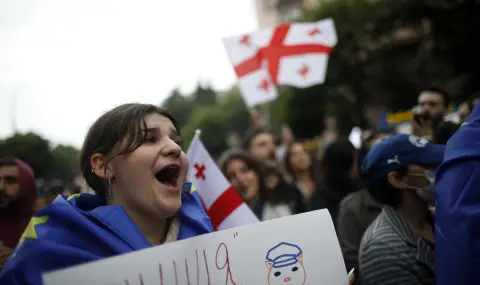Georgian Parliamentary Committee has decided not to support President Salome Zurabishvili's veto against the law on foreign influence, BTA reports.
The decision sparked widespread protests and debates about the country's future direction, especially regarding its relationship with the European Union and media freedom.
On May 18, President Zurabishvili vetoed a law that critics say could limit media freedom and hinder Georgia's path to EU membership.
The ruling party "Georgian Dream" and her allies, who originally passed the bill, are preparing for a vote in parliament to overcome the president's veto.
The capital Tbilisi is a hotspot for protests against the law. The situation escalated when President Zurabishvili and Prime Minister Irakli Kobakhidze exchanged sharp remarks during Georgia's Independence Day celebrations.
Zourabishvili stressed the importance of alignment with Europe to ensure the country's independence and peace, while Kobakhidze emphasized the government's role in maintaining peace amid external threats and challenges.
The upcoming parliamentary vote will be crucial in determining the direction the country will take. The debate over the foreign influence law not only highlights domestic political dynamics, but also highlights broader geopolitical challenges , facing Georgia.
With the looming shadow of Russia and the drive to join the European Union, decisions made in the coming days will have lasting consequences for Georgia's future.
